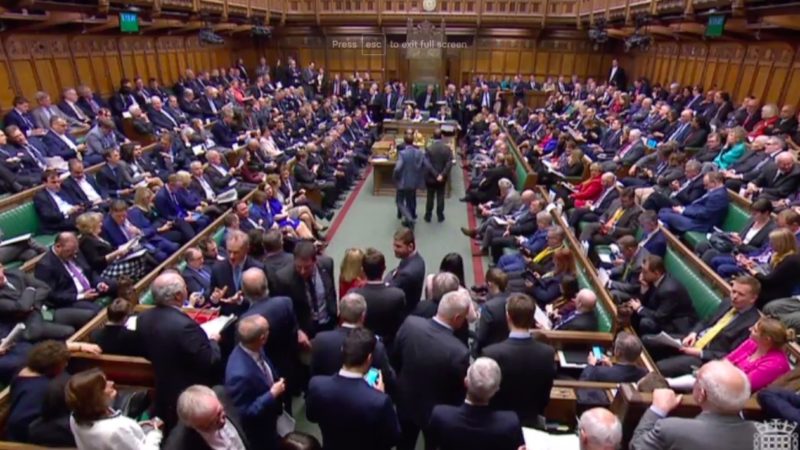
At the end of a long day filled with discussion about which of the Brexit options would gain a majority in parliament, MPs voted in favour of… nothing, again. Having given themselves the opportunity to express support for an alternative to Theresa May’s Brexit deal and force the Prime Minister’s hand, the Commons asked itself ‘what do we want to do about Brexit’ and replied ‘dunno’. Another round of indicative votes will likely be held on Wednesday, but there is no doubt that the ‘no, no, no, no’ outcome last night was “disappointing”, as Jeremy Corbyn put it.
Actually, disappointing is an understatement. Labour members and MPs are furious with the government, Tories and each other. The motion for another referendum received the most support but was rejected by 12 votes, while the customs union proposal enjoyed the slimmest defeat of just three votes (reflecting the same pattern as last week’s results). There was hope that Common Market 2.0, with new Labour and SNP backing, would do very well. Ultimately, it fared much better than last time but was defeated by 21. So, what happened? Why couldn’t MPs get their act together and settle on a compromise?
The answer is very simple: too many weren’t willing to compromise. Almost everyone in Westminster – myself included – has expected MPs to shift their red lines as the exit date nears. Because that would be the reasonable thing to do, particularly now that the EU has told us to find an alternative by April 12th or risk leaving without a deal. But some are still voting only for their first preference, not for all the alternatives that they could live with, which was supposed to be the point of this indicative process.
Although Common Market 2.0 advocate Stephen Kinnock has serious reservations about another referendum, he switched from abstaining to voting for the Kyle/Wilson idea. Was this repaid in kind? No – those most strongly in favour of a public vote spurned the chance to support a softer Brexit than May’s deal. Incredibly, six Labour MPs (plus all ex-Labour “Change UK” MPs) who defied the whip back in June to vote *for* the EEA decided to defy the whip again – this time to vote *against* a Norway-style arrangement. Whether they are aware that ‘Remain’ vs ‘Remain’ isn’t possible to have on the ballot paper is unclear.
There is also a lot of anger towards the Labour leadership for letting those rebels in frontbench positions off the hook. Andrew Gwynne switched from abstaining to voting in favour of a public vote, but shadow cabinet members Ian Lavery and Jon Trickett remain implacably opposed to the idea and again abstained – as did nine junior shadow ministers. There seems to be no consistency in whether frontbenchers have to resign if they defy the whip on this issue.
Whatever your position on Brexit, pro-PV or not, there is something to be incensed by – and frankly all of the anger is understandable. Of course Labour MPs are exhausted and simply doing what they believe is right. But that can be difficult to remember when – along with “Change UK” and the Lib Dems – have been just as uncompromising as the Tories who are still voting against May’s deal even though they’d prefer it to any Brexit option other than no deal, and just as unwilling to shift their red lines as the Prime Minister.
Sign up to LabourList’s morning email for everything Labour, every weekday morning.



More from LabourList
Turning the page? Labour’s recovery in the polls show a path to 2029 victory
Restoration announce recommendations for NEC candidates
‘Factionalism at the top is weakening Labour – and handing a gift to Reform’